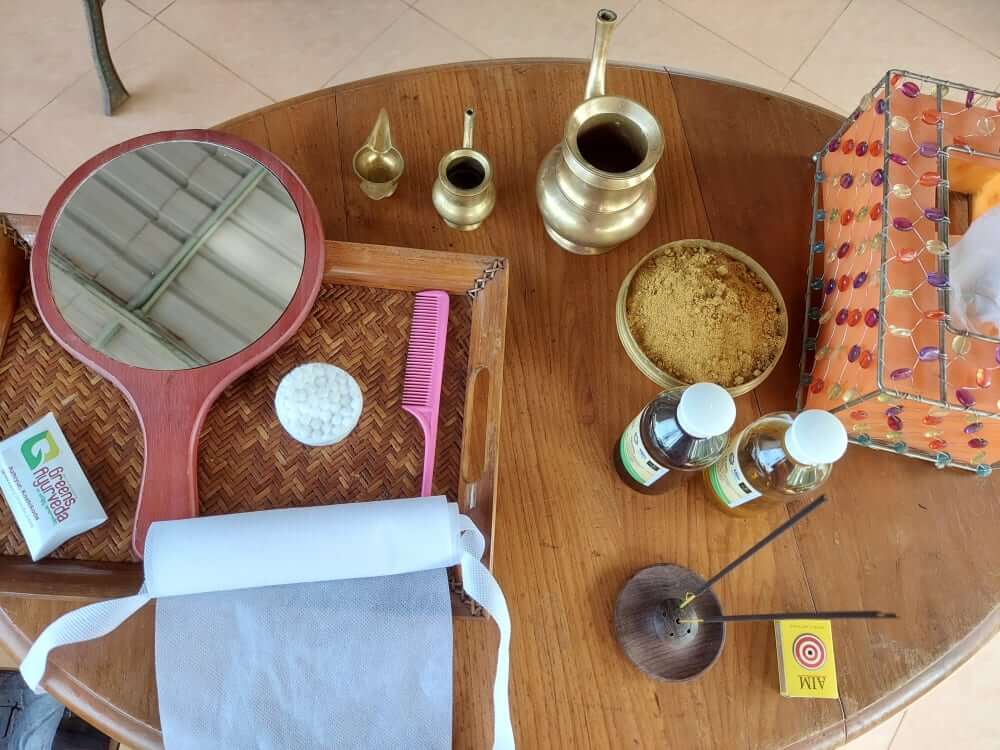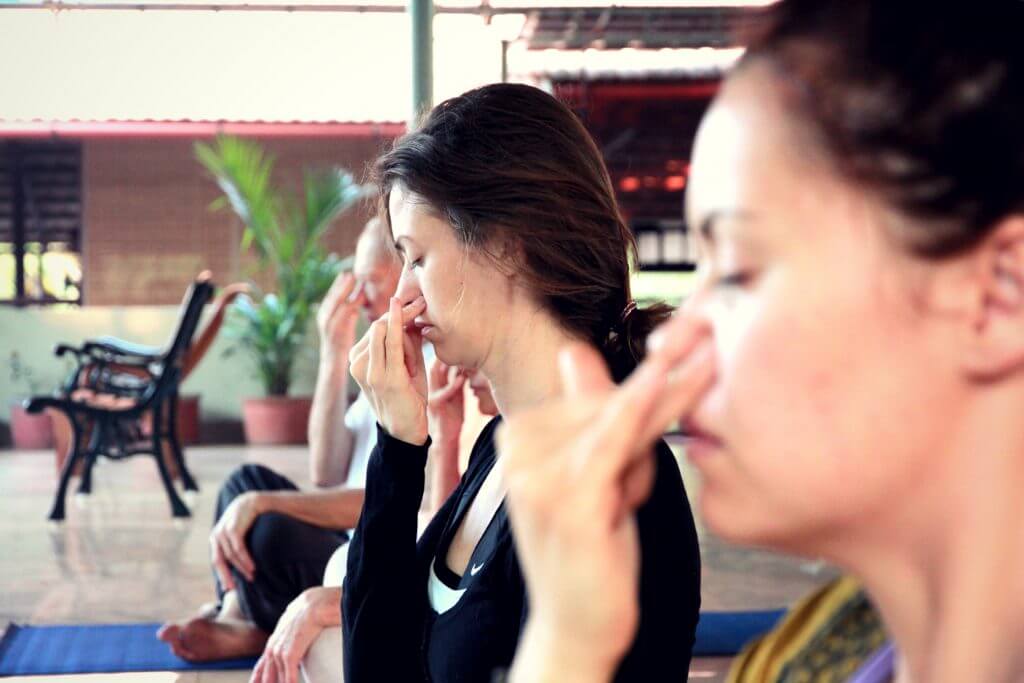The Ayurvedic daily routine
An important goal in Ayurveda is to maintain the health of the healthy. According to Ayurveda, this succeeds in addition to a healthy diet with a healthy lifestyle. The Dinacharya contributes to a healthy lifestyle – the Ayurvedic daily routine.
In Ayurveda, it is particularly important to have a regular daily routine that focuses on physical and mental purity and awareness.
The Acharyas (the scholars who wrote down the ancient knowledge about Ayurveda a few thousand years ago) have placed a great focus on maintaining health and a healthy daily routine in their books.

The scholars were quite specific and very detailed. Several points are mentioned for the morning cleaning alone. In addition to brushing your teeth with a neem tree branch, cleaning your tongue with a palm leaf, you should also clean your eyes with medicated black kohl (Anjanam), smoke from herbs through your nose – and exhale through your mouth (Dhoomapani), and your mouth should contain liquid held (Gandusha) and gargled (Kabala). The face and eyes should be rinsed with clear water. The nose and ears can be oiled with a few drops of oil (Karna Poornima and Nasyam). Before taking a bath, you should massage yourself with oil or powder and then do some sport. However, this should only be done with half the intensity and until a light film of sweat forms on the skin. There are also notes on daily shaving and haircut. This morning procedure, during which all sensory organs are cared for, can take up to 2 hours. Therefore, one should also get up at Brahma Muhurta – the particularly energetic time before sunrise.

The ancient Ayurvedic books also describe how to dress (clean, attractive and tidy), decorate yourself and your house with flowers and apply a fragrant scent.

Meals should be eaten regularly with 3 to 6 hours in between, neither too much nor too little, too slow or too fast should be eaten. There will be a separate article on the extensive Ayurvedic diet.

In addition, it is described that one should pursue an activity that is meaningful and satisfying. One should suppress bad emotions such as anger, anger, envy, pride, etc., but the natural urges by no means. There are 13 of them, urination, bowel movements, yawning, coughing, gas and sweating are just a few of them.
You should behave in a respectful and friendly manner towards your fellow human beings; basic ethical rules must be adhered to.
Before going to bed, reflect on the day and think of God.

I always find it fascinating how detailed the Acharyas dealt with a healthy routine back then and how these points are still justified, perhaps even more so than ever.
Of course, all the rules can be a bit overwhelming when starting out with Ayurveda.
Everyone should decide for themselves which points of the daily routine are to be taken over or which can perhaps be slightly modified. It makes sense to start with a few small points and then maybe incorporate more routines over time.
It was very similar for me. At the beginning I just started the day with a glass of warm water, the tongue cleaning, the Gandusha mouthwash and the nasal shower, followed by yoga and meditation. This was followed later by oiling the ears and cleaning the eyes with medicated drops. I usually move the self-massage towards the evening and do it once or twice a week.

I still have to work on my evening routine in particular. Here you should try not to go to bed too late, turn off your mobile phone early and end the day with relaxation, reflection or meditation. Sleep before midnight is considered particularly restful.
Routines can give you an incredible amount of stability in an intense or even hectic everyday life. They seem incredibly grounding to me. While the morning routine gives me a conscious and positive start to the day, the evening routine brings the day to a great end and gives me a little more connection to myself.





